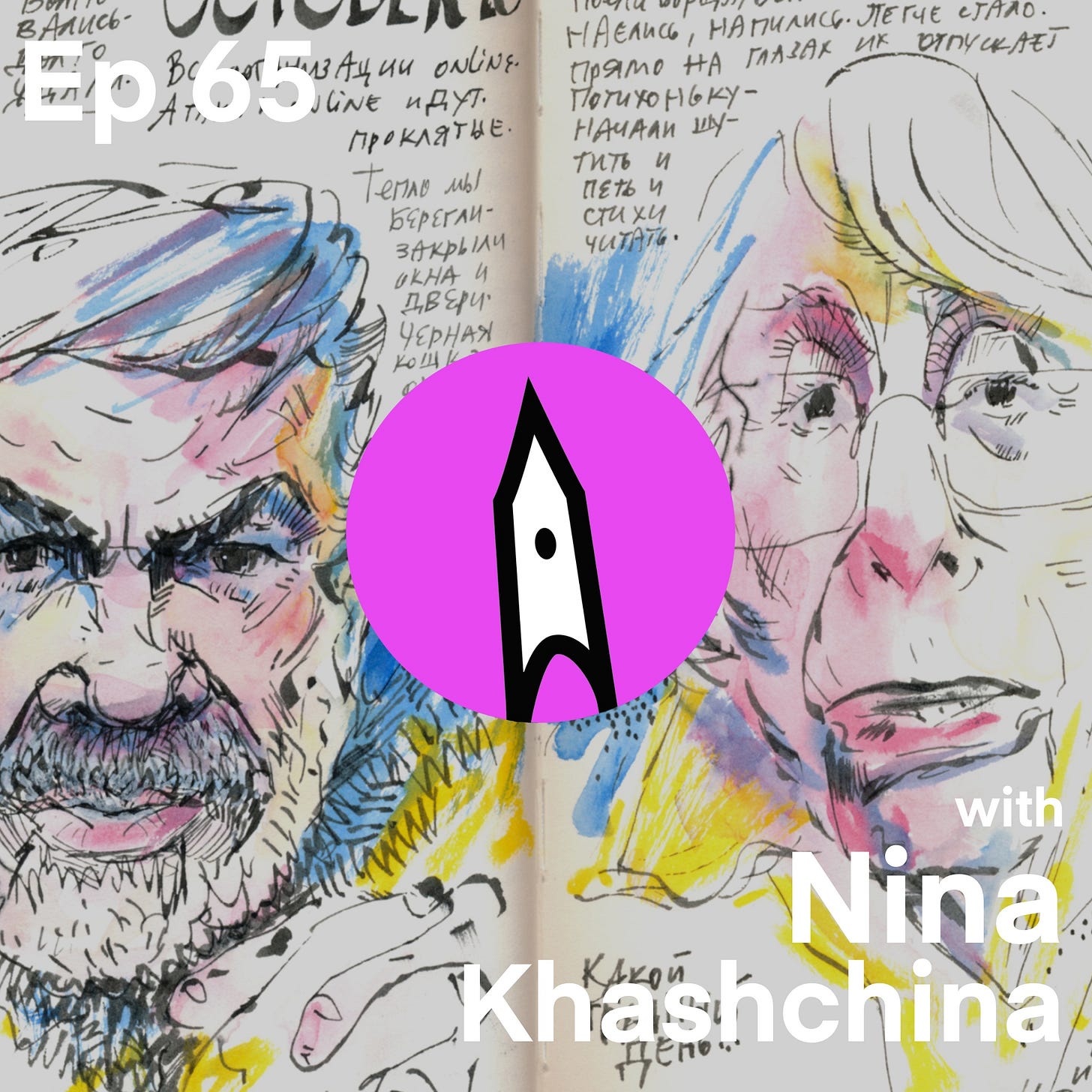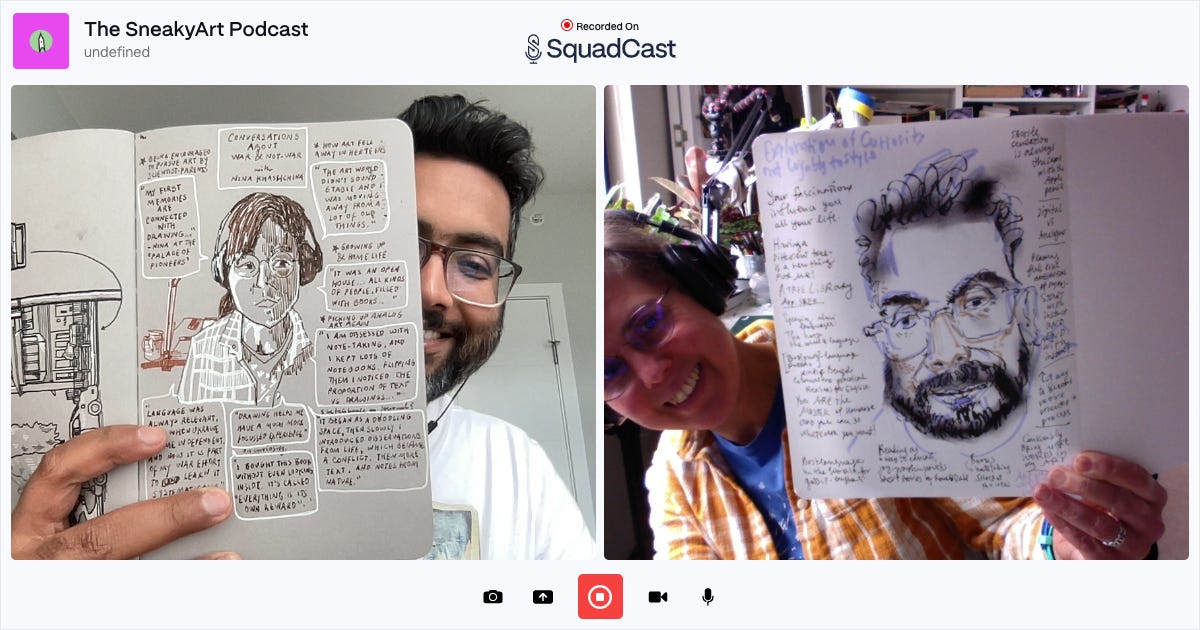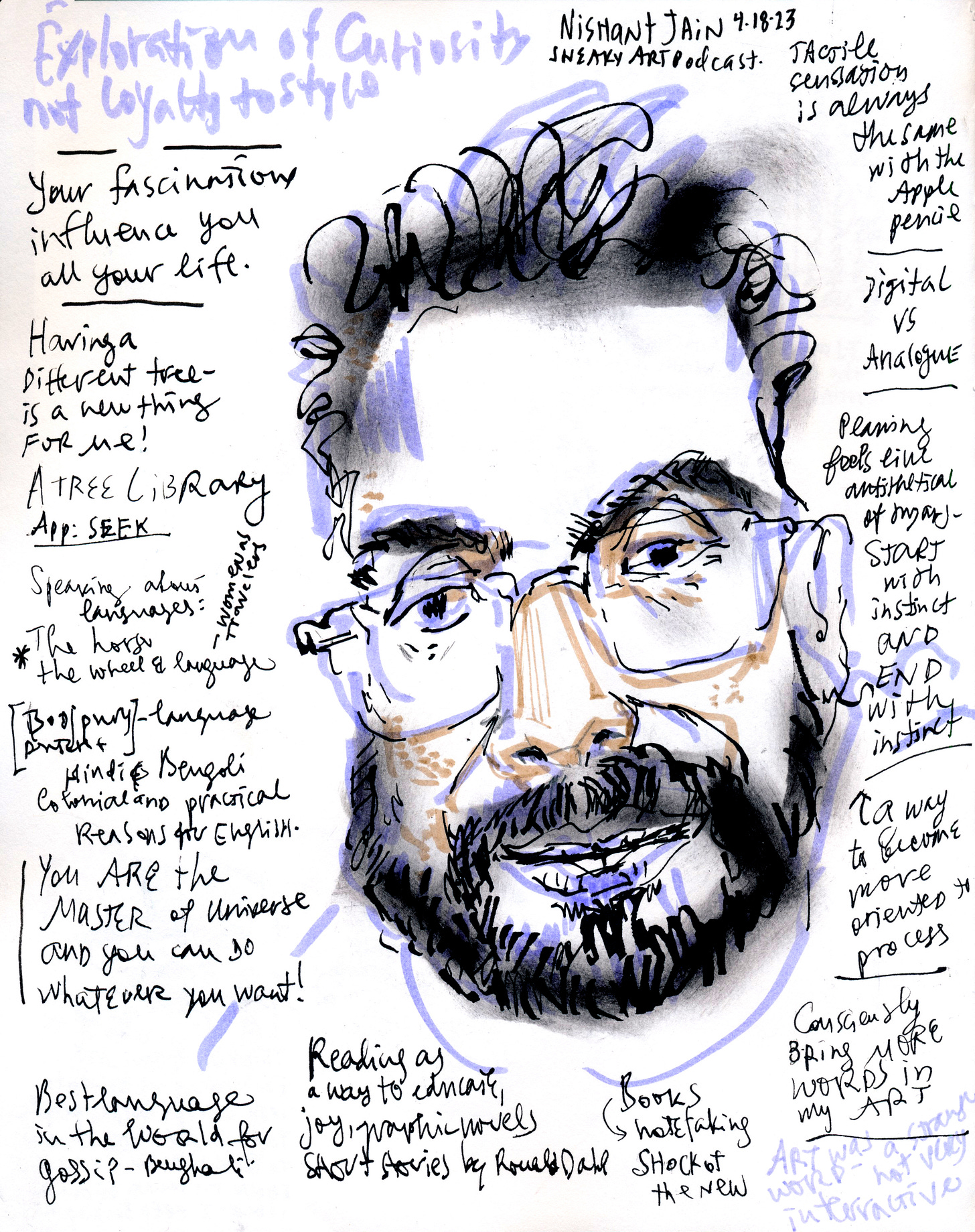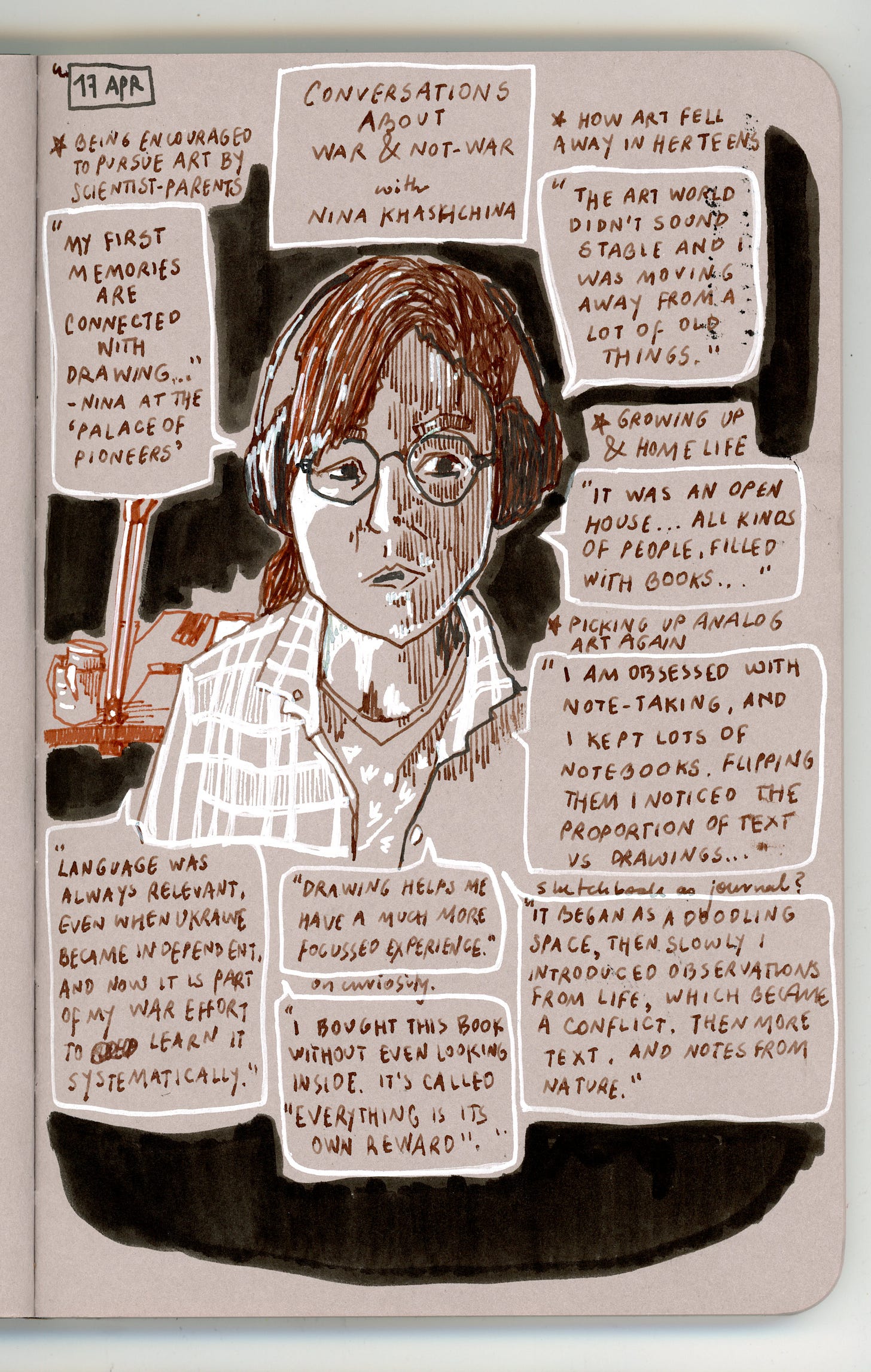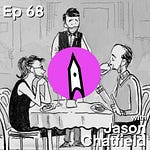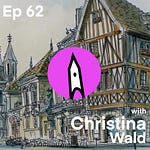Dear listener,
This is the second part of my conversation with Nina Khashchina, an artist and illustrator in California.
Nina shares her feelings of helplessness, watching from afar as her country was invaded and the bombs dropped every day on her hometown of Kharkiv, Ukraine.
She speaks about the daily video calls with her parents who lived there then, and how she has documented each session in her sketchbooks.
We talked about books and geopolitics and language, and the geopolitics of language, and then we talked about nature and cities and art and art of nature and of cities.
I learned that to talk about war, you have to talk about not-war.
In this post find the main talking points of the conversation, interesting tangents, and links to send you down other rabbit-holes. Also find the book list of this episode.
A reminder: Nina and I were drawing each other and taking notes throughout the conversation. So if you hear any ambient scratching noises in this recording, that’s what that is!
Listen to this episode on your choice of streaming service:
Spotify | Apple | PocketCasts | Google | Web | Gaana
This episode is the second part of my conversation with Nina. Listen to the first part on Episode 64 of the Podcast.
Talking and Journaling
For the first time ever, the guest and I have taken notes and drawn each other during the recording itself. At the end, Nina and I held up our sketchbook pages for the other to see.
Show Notes
The feeling of helplessness during the pandemic, and the Zoom connection with distant family.
Trying to be a source of support from a distance - keeping track of resources, supplies, staying in touch with extended family.
The emotional toil of tracking every bombing when Kharkiv was being bombed daily.
[16:30] How Nina is re-educating herself in the Ukrainian language
[22:00] A book list emerges.
📚Nishant, The Horse, the Wheel, and Language by David W. Anthony
📚Nishant, Early Indians by Tony Joseph
📚Nishant, If on a Winter’s Night a Traveller by Italo Calvino.
📚Nina, Dictionary of the Khazars by Milorad Pavic
📚Nishant, Charlie and the Chocolate Factory by Roald Dahl, and his short stories.
📚Nishant, Victory City and Enchantress of Florence by Salman Rushdie.
📚[44:49] The Work of Art in the Age of Mechanical Reproduction by **Walter Benjamin. Read my 4-part exploration of this fascinating essay from 1936 in search of answers to questions from 2023.
📚Nina, The Real World of Technology by Ursula Franklin.
📚Nishant, At the Existentialist Cafe by Sarah Bakewell, and Meditations by Marcus Aurelius.
📚Nishant, End of Art by Arthur Danto.
📚Nishant, The Shock of the New by Robert Hughes
[53:13] Coming back to the subjects - both war and not-war.
📚Nina, Everything is its own Reward by Paul Madonna
How Nina handles the difficult conversations
[58:35] How Ukrainian artists are living through the war [Article]
[60:35] What attracted Nina to urban sketching?
📚 Nina, How Buildings Learn by Stewart Brand
[66:21] Nishant, on how libraries have reinvented themselves in the information age.
Nishant talks about his accelerated learning from watching other sketchers draw.
How blogging/writing helps Nina and Nishant share their work and life with friends and fans.
[70:46] Nishant: “I've been writing every week around my art for the last almost three years now, and it's been so rewarding... Instagram is not the only way that I speak to an audience. It's so difficult to really connect [on] Instagram … I feel like I have to try to grab their attention.
And this has given me a way to just do my part and, when they have time, they give me a little bit of time and they do their part. And everybody is more wholesome and everything is more consensual and nothing is about being flashy and just jumping out at you and asking you to not scroll, just stop and watch this and listen to this music.”
Why write to other people?
“And it's a good idea to put that thing in words to someone other than yourself… it's like the difference between knowing something and then teaching something?”
[73:19] Sketching underwater while scuba diving!
Rite in the Rain, and the supplies Nina uses while sketching underwater
Maintaining a dive log to journal every underwater experience.
Overthinking and art as a way to get over it.
And these are our notes made during the conversation.
☕ Liked the episode? Buy me a coffee.
💌 Love the show? Take this hot summer deal to become a SneakyArt Insider!




